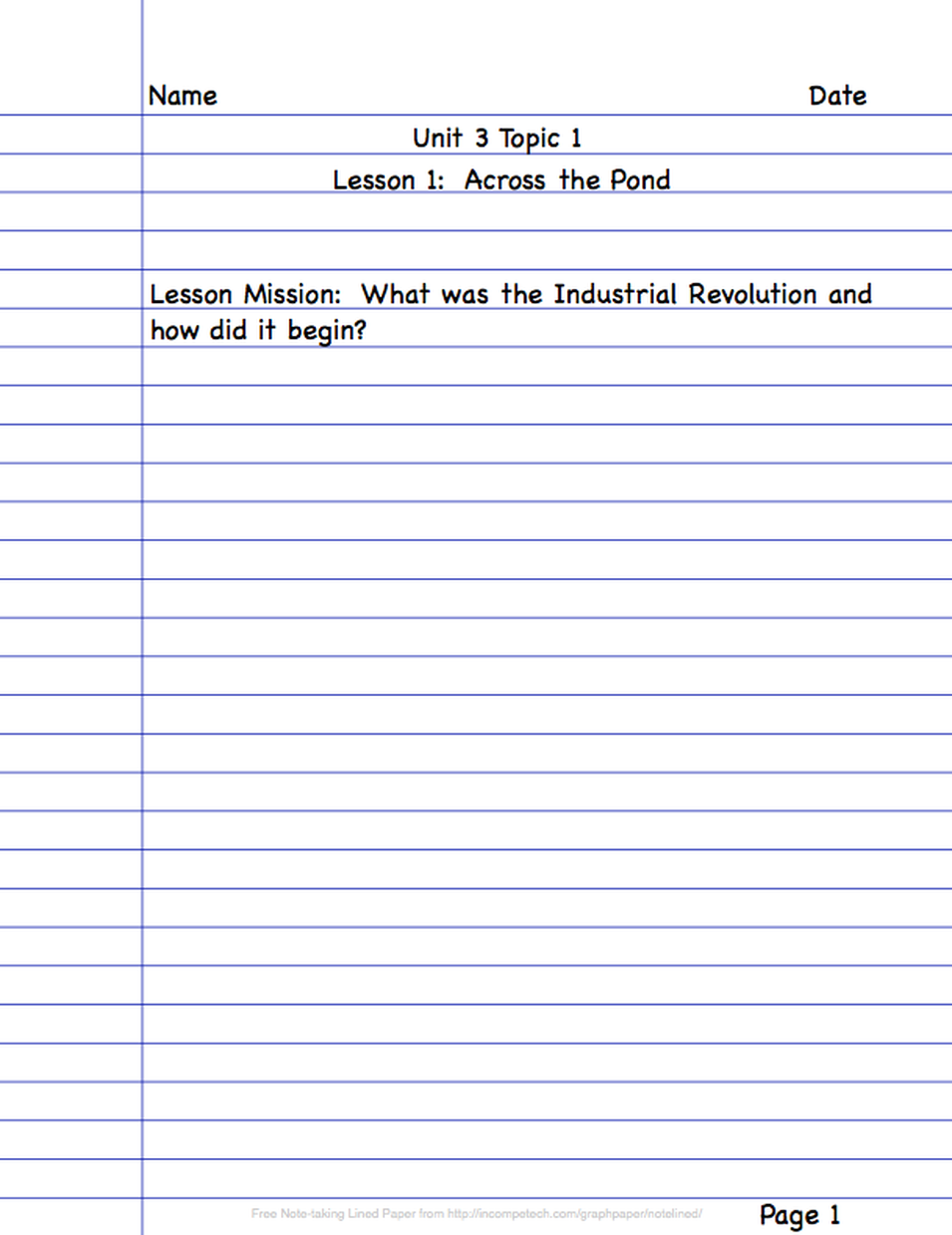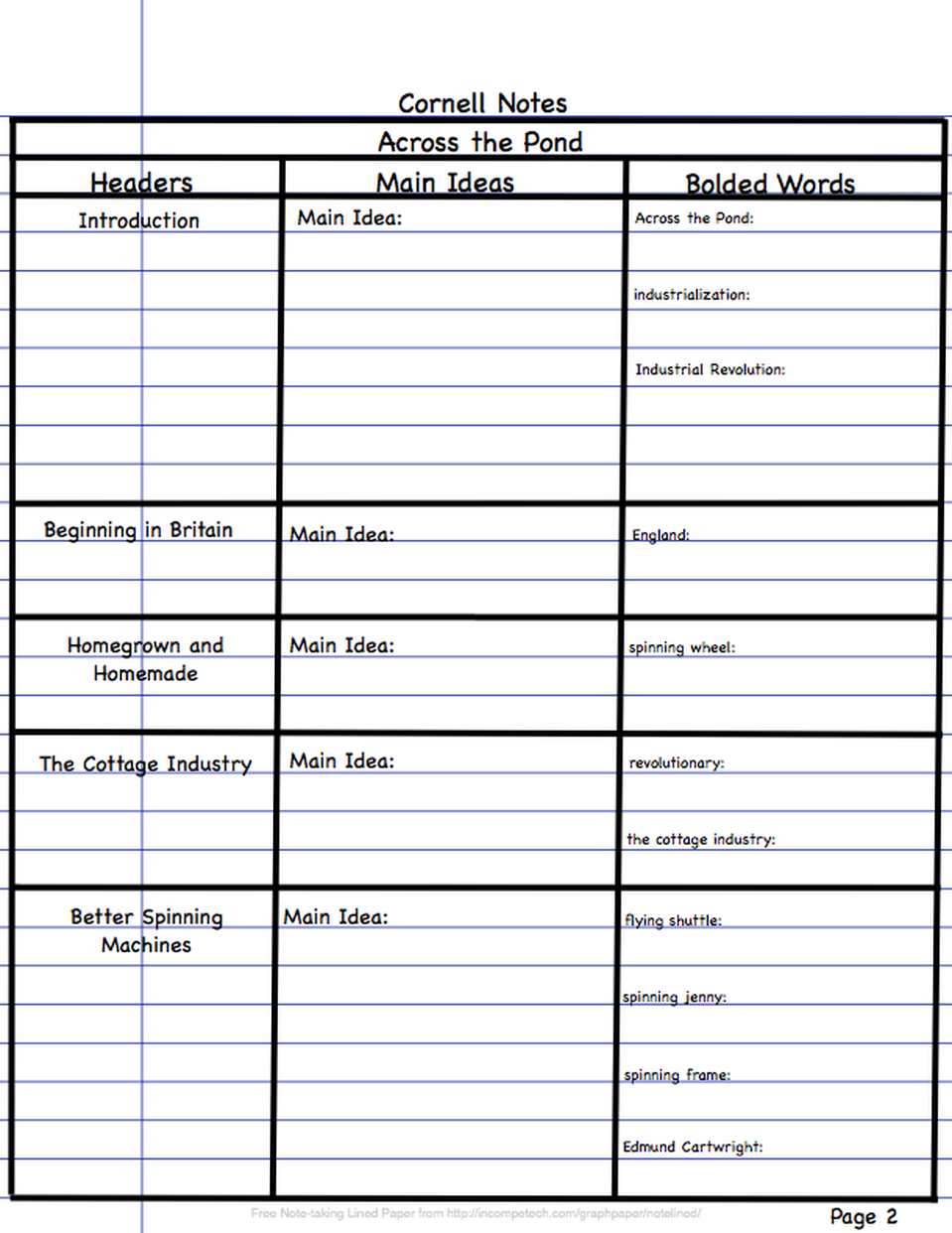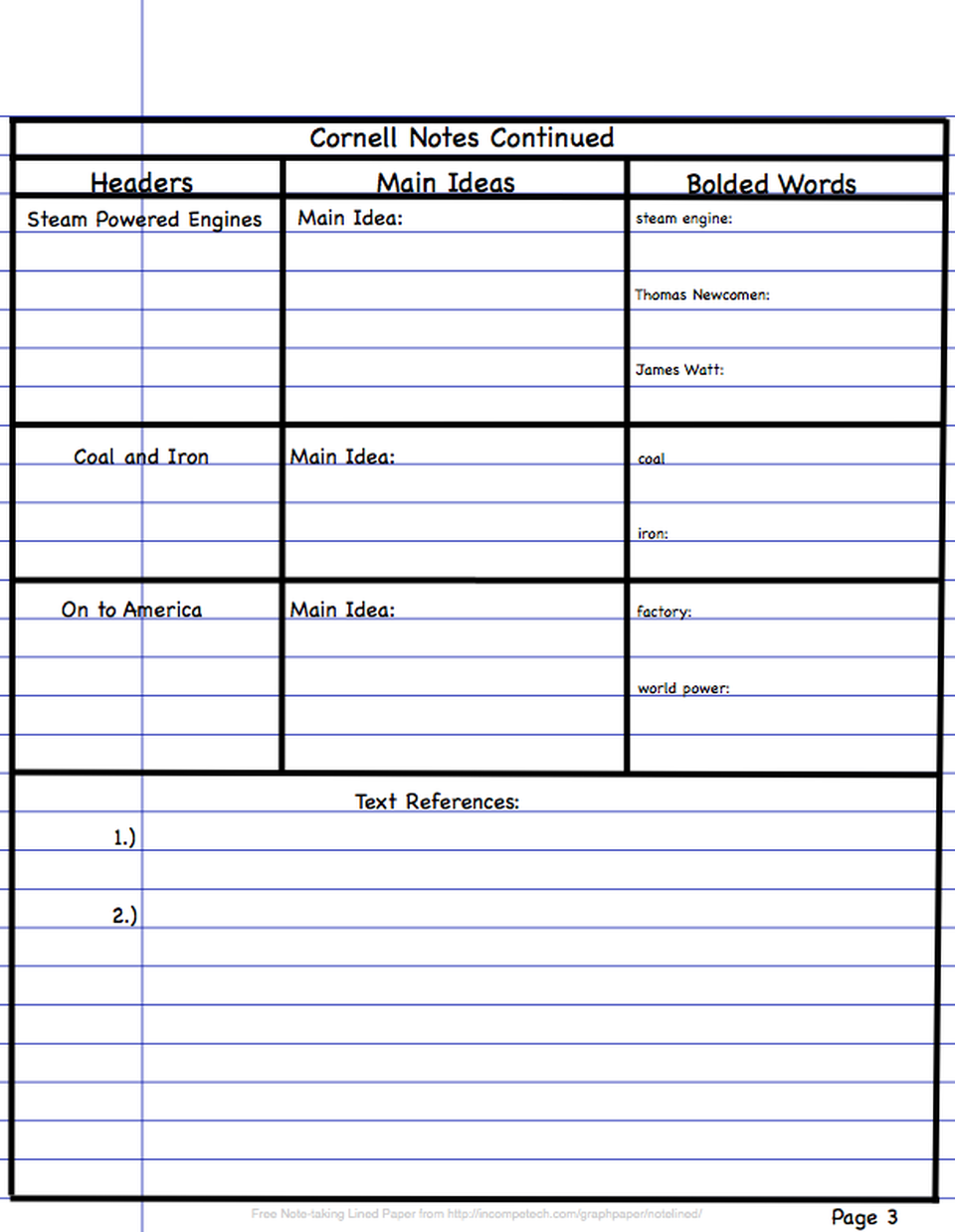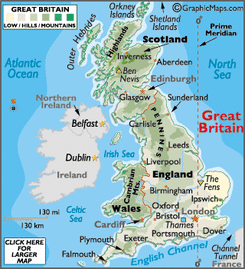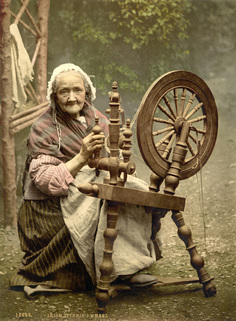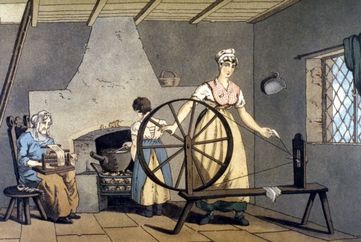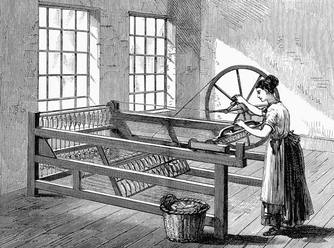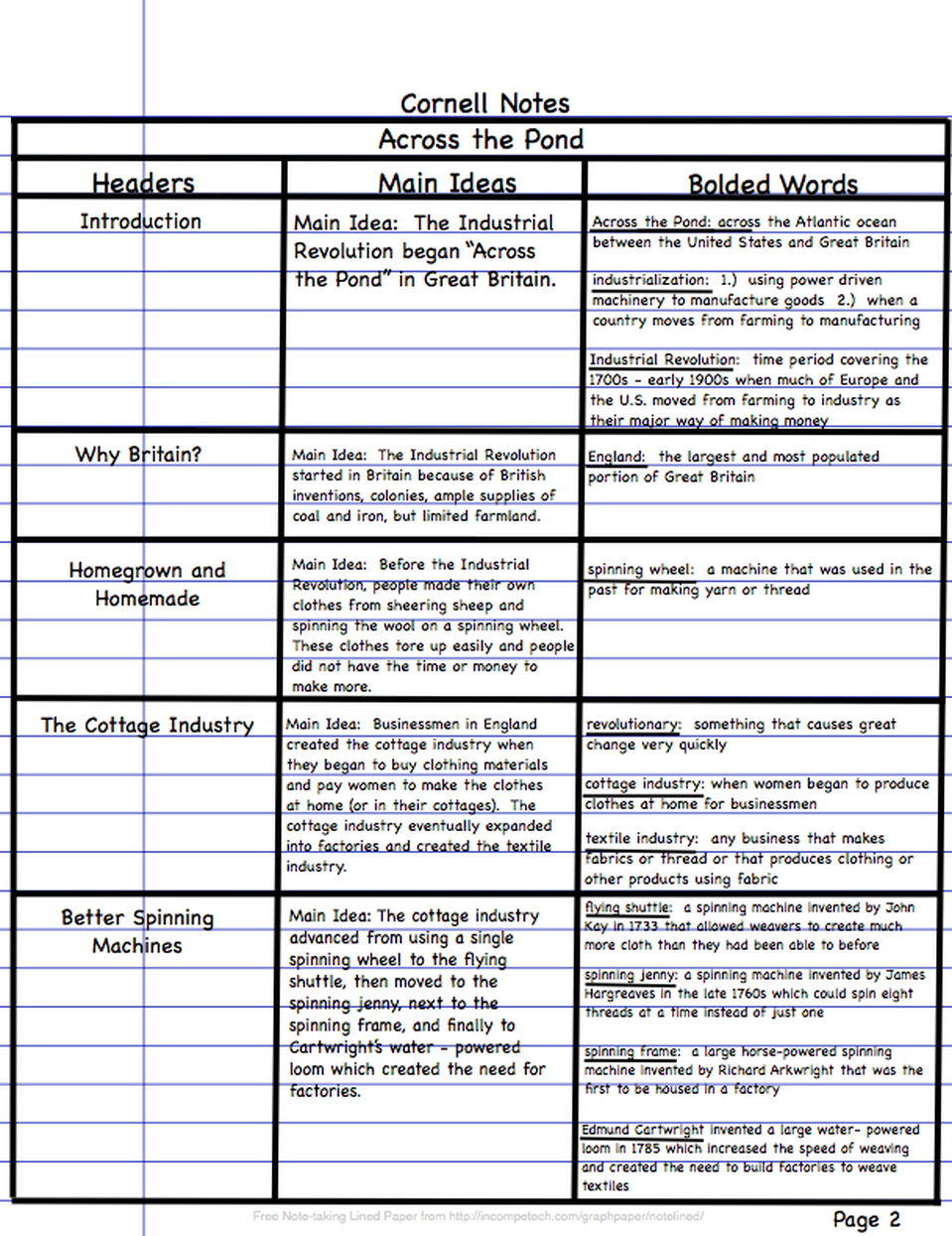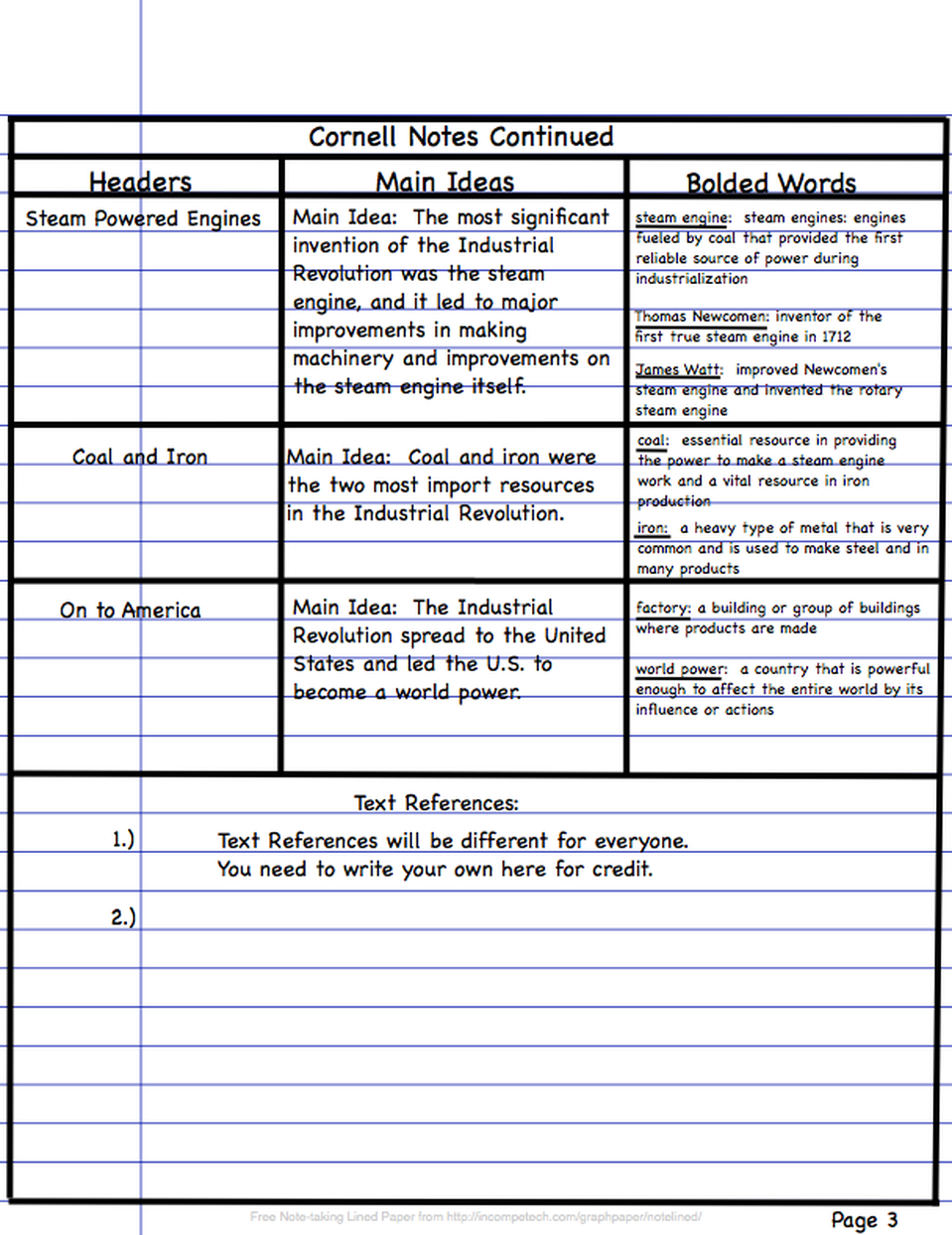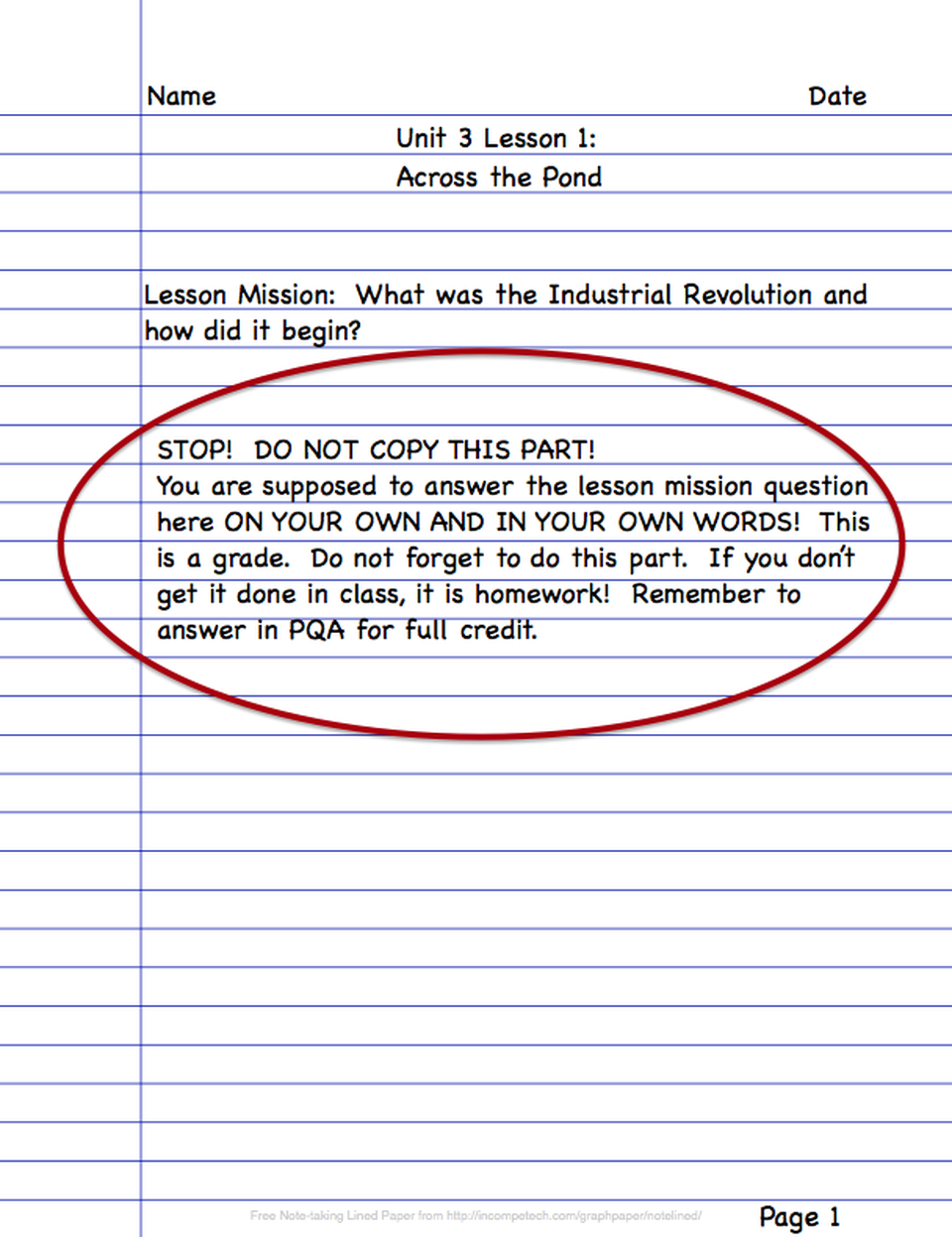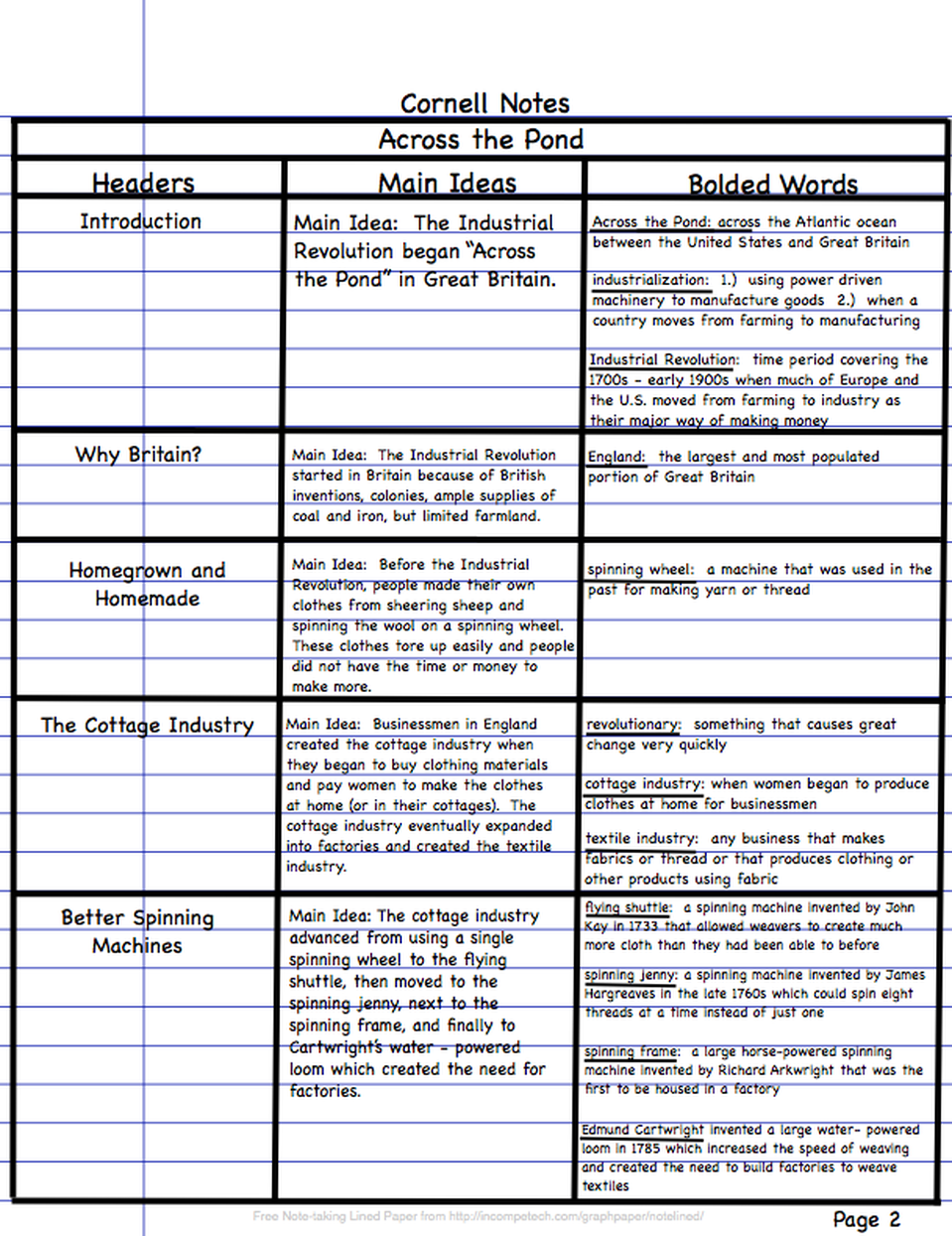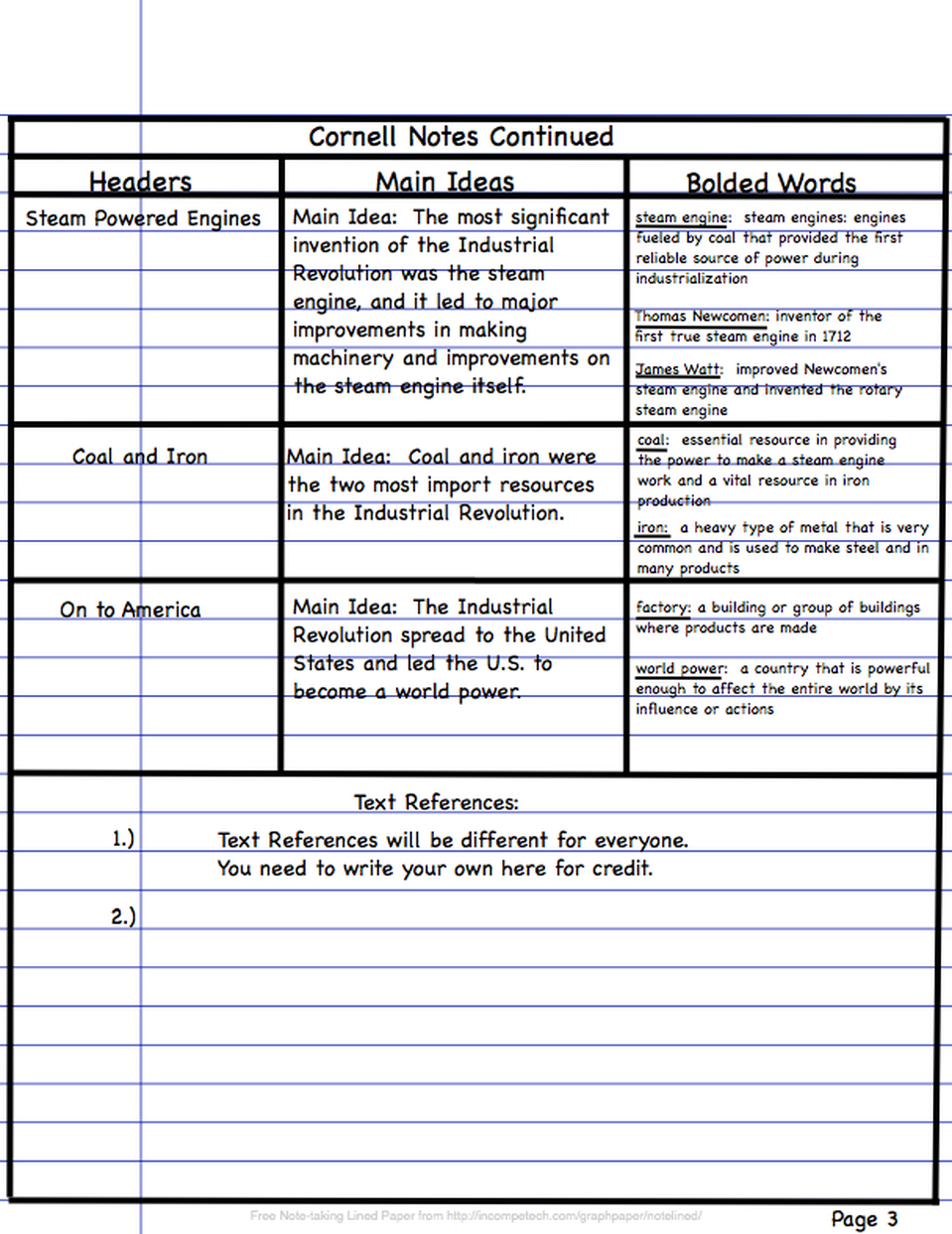Unit 3: The Industrialization Age
Topic 1: Industrialization
Topic 1: Industrialization
LESSON 1:
ACROSS THE POND
FOCUS ACTIVITY
Lesson Mission

DIRECTIONS: Remember, the Lesson Mission is what you, the student, will be able to do after the lesson is over. Begin today's Lesson Chronicles Entry by heading your paper with your name and the date and the Lesson Title. Write down today's essential question. Answering the essential question at the end of the lesson is your Lesson Mission!
Essential Question(s):
What was the Industrial Revolution and how did it begin?
Set up your Lesson Chronicles for today like the example below.
TEACHING ACTIVITY
Pre-Reading - Making a Skeleton Outline

DIRECTIONS: Remember, accomplishing your lesson mission is your purpose for reading. To accomplish your mission, you must be able to answer the essential question(s). We will continue to work on answering essential questions by identifying information from key text structures to make a skeleton outline of the text.
|
Recall the Key Text Structures in Non-Fiction Text:
1. Headers 2. Sub-headers 3. Bolded Words 4. Italicized Words 5. Pictures & Captions 6. Boxed off Information 7. Charts and Graphs 8. Maps |
Create a Skeleton Outline:
1. Column 1: Headers and Sub-headers 2. Column 2: Main Idea 3. Column 3: Bolded words with definitions and descriptions 4. Bottom Row: Text References - These are your own personal thoughts about the reading! |
Set up the Skeleton Outline for today like the example below.
WHOLE GROUP ACTIVITY
Guided Reading

DIRECTIONS: Now that you have a purpose for reading, and you have identified the key elements of the reading, we will take turns reading the passage below as a class.
As you read, if a certain part of the reading makes you think of a text to text, text to self, or text to world connection, write it in the bottom row.
Recall the text to text, text to self, and text to world strategy:
As you read, if a certain part of the reading makes you think of a text to text, text to self, or text to world connection, write it in the bottom row.
Recall the text to text, text to self, and text to world strategy:
- Text to text references: When a certain word, phrase, or sentence reminds you of something else that you have read.
- Text to self references: When a certain word, phrase, or sentence reminds you of something about your own life.
- Text to world references: When a certain word, phrase, or sentence reminds you of a world issue or event.
ACROSS THE POND
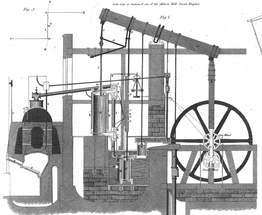 James Watt's Improved Steam Engine
James Watt's Improved Steam Engine
The most significant invention of this period was the steam engine invented by Thomas Newcomen in 1712 and substantially improved by James Watt in the late 1770s. This engine did not require running water or horses to provide energy. Steam engines could be built and installed in factories almost anywhere. The development of steam engines led to major improvements in making machinery tools, which in turn led to these tools being used to create new and better versions of engines and many other machines.
COAL AND IRON
 Coal
Coal
The two great resources of the Industrial Age were coal and iron. Coal was essential in providing the power to make a steam engine work. Massive amounts of coal were used to power these engines, and England had many available coal mines. Coal also became vital to the production of iron. Heating coal in an air-tight oven produces coke, and in 1713 an English iron maker used coke to make iron (instead of using hardwood from England’s nearly depleted forests). Further inventions made it easier to make iron as well as to make it stronger, simpler to work with, and easier to roll into the needed shapes.
ON TO AMERICA
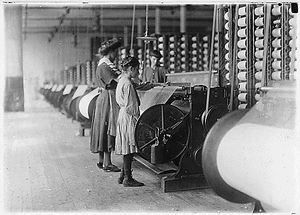 Textile Mill
Textile Mill
After beginning in England, the Industrial Revolution spread to France, Belgium, Germany, and other European countries. The United States—having newly gained its independence from England—became a perfect atmosphere for the spread of industrialization. Many of the northern states in the U.S. began to experience a spurt in the development of factories. From 1783 until 1860, factories spread throughout the United States. The Civil War and years that followed brought the United States to a position of world power, based on its industrial might.
SMALL GROUP ACTIVITY
Who Wants to be a Millionaire

In this activity, your group will play a game called Who Wants to Be a Millionaire. To play, you will work on one person's computer and you will answer each question working with your group. Make sure you are right. Then click on "Yes" when asked if this is your final answer. If you miss a question, you must start over and play again until your group gets all the questions correct. When you get them all correct, raise your hand and I will come and check your group off.
To get started, click on the INDUSTRIALIZATION REVOLUTION MILLIONAIRE picture icon above.
To get started, click on the INDUSTRIALIZATION REVOLUTION MILLIONAIRE picture icon above.
INDIVIDUAL ACTIVITY
Answering the Essential Question

A Lesson Chronicles Activity is an individual activity where you prove that you accomplished the lesson mission. Lesson Chronicles require you to keep a notebook or journal with a table of contents. Each entry should be dated. First, you write the lesson mission. Then you prove you "can do" whatever the mission says by answering the essential question of the lesson in PQA format. Remember PQA format means "Put the Question in the Answer".
DIRECTIONS: Work by yourself to prove you have completed today's mission successfully by answering the essential question for today. Answer the question on the first page of your Lesson Chronicles under your Lesson Mission. Refer to the example below. The example shows you what all you are expected to have for your portfolio check on this lesson.
HOMEWORK
Finish the Lesson and Family Time

Remember, you have homework every night in Social Studies. Your homework is to show your Lesson Chronicles to your family and tell them what you learned today. Not only will this give you quality time with your family but it will help you review for your unit test. Go over your lesson chronicles entry from today everyday to help you study for the Topic Quiz and Unit Test.
If you did not complete any assignments from today, they are homework. You never know when I am going to check portfolios, so make sure you are keeping up!
If you did not complete any assignments from today, they are homework. You never know when I am going to check portfolios, so make sure you are keeping up!
END OF THE UNIT 3 LESSON 1 MODULE

Congratulations! You have Completed the Unit 3 Lesson 1 Module!
If you'd like to learn more about the Industrial Revolution, watch the video below from John Green's Crash Course to World History - the Industrial Revolution. If you finish early and watch these in class - you must use your headphones!
If you'd like to learn more about the Industrial Revolution, watch the video below from John Green's Crash Course to World History - the Industrial Revolution. If you finish early and watch these in class - you must use your headphones!
